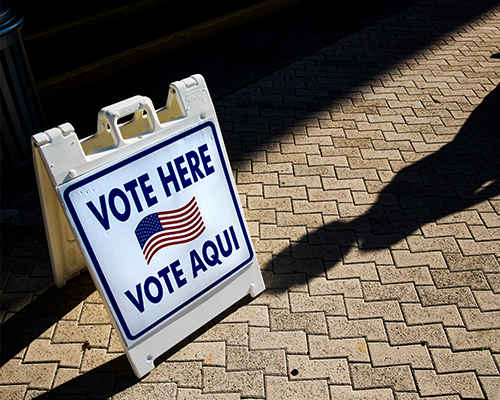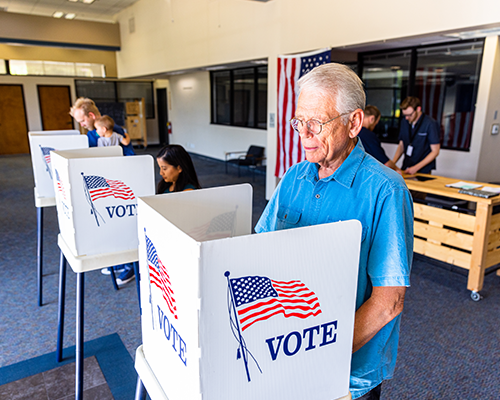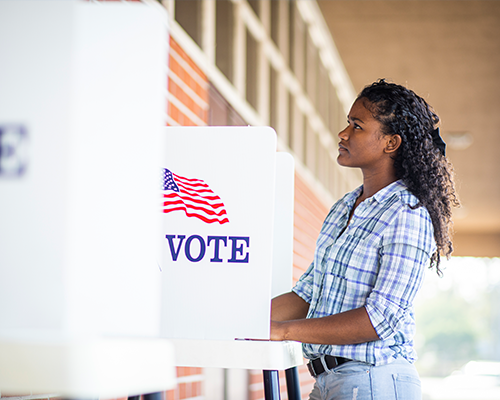
How can I tell if election information
is accurate?







In a time when there is so much information coming at us every day, it is important to know that some information will be misleading or just plain wrong. False information can come in the form of social media posts, articles, faked videos, spam text messages or phone calls impersonating someone’s voice. We are all likely to encounter false claims, so we need to work together to make sure we rely on trusted information.
With the upcoming elections, it is important to think critically about claims we might encounter. Here are some clues that a story or claim might not be true:
- does it seem outrageous or hard to believe?
- does it come from a sketchy or biased source?
- does it lack credible evidence to back up its assertions?
- does it cause a strong emotional response?
- does it rely on opinions of people who are not real experts on the topic?
- does it come with a request for money?
Before you share a post or video, take a minute to assess your emotions and ask yourself if what you are feeling is based on fact. We are more likely to believe something is true if it aligns with our pre-existing beliefs. When in doubt, it’s a good idea to look for an alternative, trusted source before sharing a claim with others.
Thankfully, Michigan has created an online database of information specifically designed to dispel some of the most common myths that have circulated about Michigan elections. Your local clerk is also a good source (find yours here).
This website provides a lot of easy to read, factual information about every step of the elections process in Michigan – who can vote, how to vote, how votes are counted, and how the process is kept secure.
Why would someone spread bad information about elections?
Most false information is shared by people who don’t realize it isn’t accurate, but some false information is being spread intentionally to deceive us.
Some people have found they can make a lot of money off of outrageous claims. Social media companies get richer with clickbait. Politicians can get a lot of media attention, and unscrupulous organizations find they can increase their fundraising using false claims to make people angry.
One recent study exposed “a cottage industry of bogus claims and statistics” that have been used to advance disproven claims about elections.
So when in doubt, think before you post. Verify claims with trusted, reliable sources – something more than a social media post or the online claims of one individual.
There are even some online games that can help strengthen your ability to figure out when someone is trying to deceive you.
